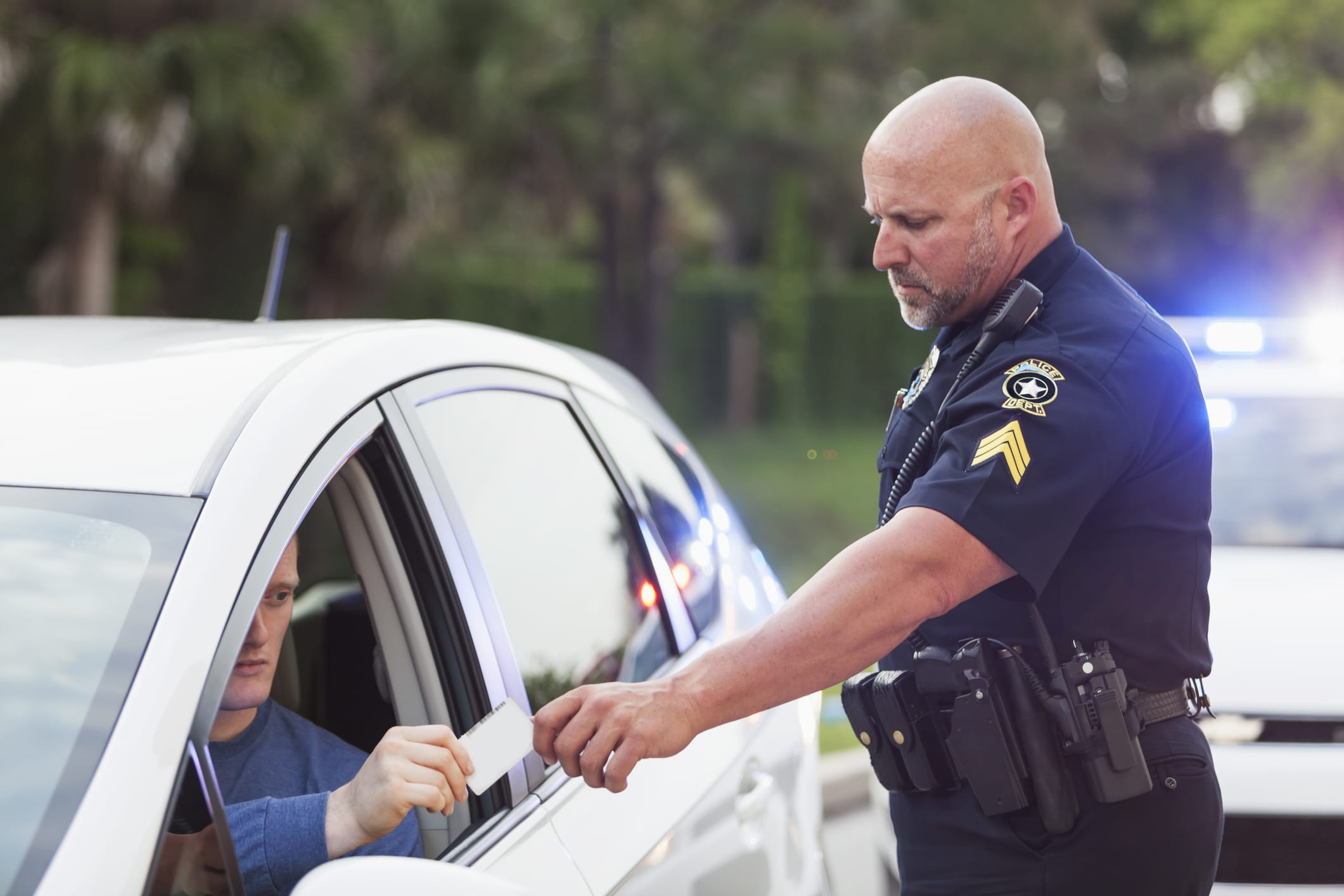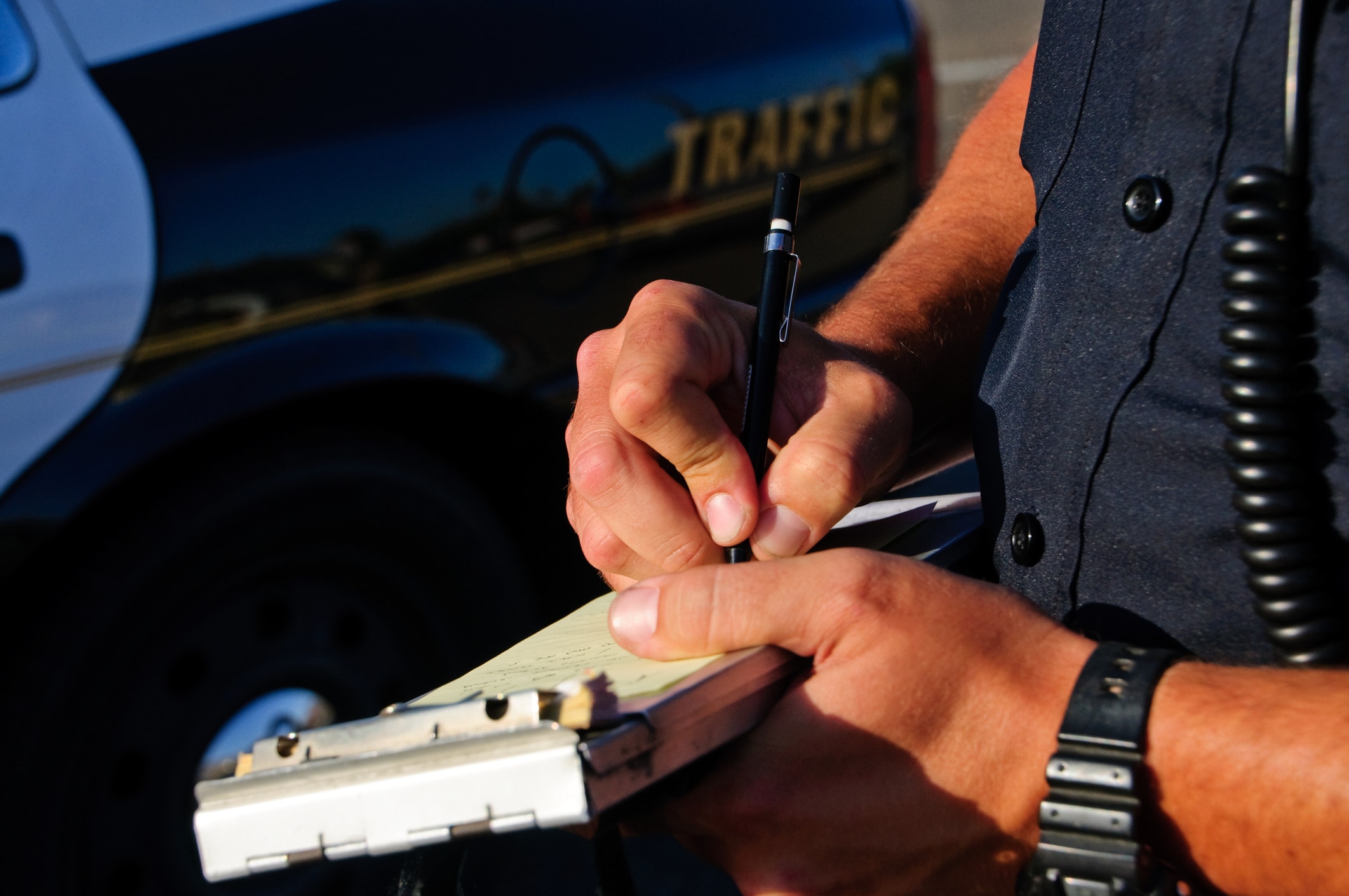A traffic stop is a nerve-wracking experience for all drivers. It disrupts your day and…

5 Tips to Avoid Common Pitfalls in Traffic Court
A traffic ticket can have a significant impact on your life. You will almost certainly face a fine and points on your license. In some situations, the consequences may also include driver’s license suspension. You could even face jail time for a serious offense like DUI. The idea of appearing in traffic court might seem daunting, but you should see it as an opportunity. Having your day in traffic court allows you to fight the charges against you, whether you received a ticket after getting pulled over or as the result of a car accident.
An experienced Missouri traffic court attorney can advise you of your rights and help you prepare your case. This article offers traffic court advice about common mistakes to avoid. These traffic court defense tips can help you know what to expect on your court date.
Kansas City Traffic Court Defense Tips

A wide variety of alleged offenses can land you in traffic court, including driving without insurance, speeding, reckless driving, and DUI. The process can often seem overwhelming, even if your charges are fairly minor. The following tips can help you understand how to handle traffic court.
1. Don’t assume you have to plead guilty
The court system encourages people to resolve disputes among themselves rather than take up judicial resources. Cases involving alleged criminal offenses often end with plea agreements. Traffic court is no different, although the paperwork might try to convince you otherwise.
Traffic tickets typically include instructions on how to plead guilty. This can be tempting in cases that involve common traffic offenses like speeding. You can submit a form and pay a fine, and then you no longer have to appear in traffic court. This gets the case over with, but it can hurt your driving record, raise your insurance rates, and possibly affect your ability to find a job. You always have the option to fight the charges.
2. Read the ticket carefully
When the state charges a person with a criminal or traffic offense, it must provide clear information about what it claims happened. This includes what laws you allegedly broke and when, where, and how the incident allegedly happened. Traffic tickets or citations must contain specific information about the alleged offense. This might include:
- The make and model of your vehicle
- The license plate number
- Your name and address
- Your driver’s license number
- A description of the alleged violation, such as speeding or running a red light.
Errors in the paperwork can lead to positive outcomes for you, including the dismissal of your case. The officer might have written down some information incorrectly or failed to provide all the required details. The court could dismiss the case entirely if the missing information is essential to the state’s charges.
3. Question the maintenance and use of police equipment
Police often rely on rather sophisticated technology when enforcing traffic laws. They use radar guns to determine when someone is allegedly speeding, for example, and devices known as breathalyzers to measure blood alcohol content (BAC) in DUI cases.
These devices require maintenance to function properly. Police officers must use them correctly to get accurate readings.
- Breathalyzers require careful chemical calibration to maintain their accuracy. Police officers must avoid contamination when collecting breath samples.
- Radar guns can give false readings because of factors like heavy traffic and interference from other radio signals.
You have the right to demand evidence that the equipment police used to build their case against you was in good working order, and that the officers involved had the right training and followed the correct procedures.
4. Challenge officers’ opinions and observations
In almost every traffic court case, an officer’s subjective interpretation of events will be a critical part of the state’s case. It might help your case to challenge the officer’s conclusions. If you received a ticket for making a dangerous turn, for example, you have the right to question how the officer determined that this was unsafe.
You can also question the circumstances in which the officer supposedly observed the alleged offense. Were they actually in a position where they could see you, or did they infer what happened after the fact? The less the officer could see with their own eyes, the weaker the state’s case might be.
Finally, you can challenge whether the officer’s decision to pull your vehicle over was reasonable or constitutional. The Fourth Amendment prohibits “unreasonable searches and seizures” by police, which includes traffic stops. A police officer cannot pull you over unless they have reasonable suspicion of some sort of unlawful activity. They might see someone driving erratically and suspect DUI. Without that kind of basis for suspecting something, they cannot stop a vehicle. If a court finds that a traffic stop was unlawful under the Fourth Amendment, it can throw the case out.
5. Bring a lawyer with you
Traffic court proceedings can be complicated. You have to follow procedures set by both state and local law. A lawyer with experience in your local court system can guide you through the process.
The Kansas City Municipal Court presents even more challenges. With more than half a million people, Kansas City is the largest city in Missouri. It makes sense that it would have the state’s largest municipal court. The court hears more than 2,000 cases per day, only some of which are traffic offenses. Prosecutors are overwhelmed. Having a lawyer on your side who knows how the system works gives you a much better chance of negotiating a deal to reduce or dismiss charges.
Contact a Kansas City Traffic Court Lawyer to Learn More
You do not have to deal with traffic court alone. Sloan Law Office offers experienced, compassionate legal services to help you with traffic court preparation in the Kansas City area.
Our team of defense lawyers can guide you through the process and advocate for your rights. Contact us today to schedule a confidential and free consultation to discuss your case with an attorney.




This Post Has 0 Comments